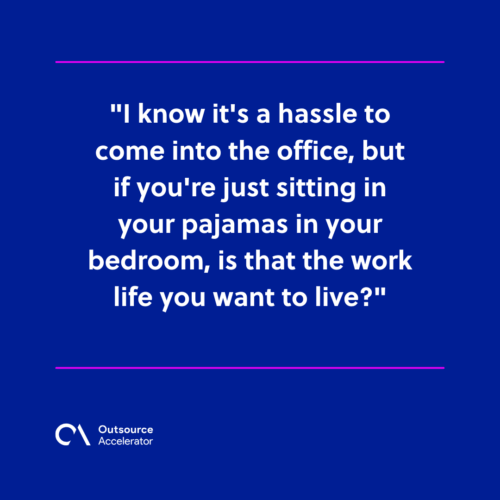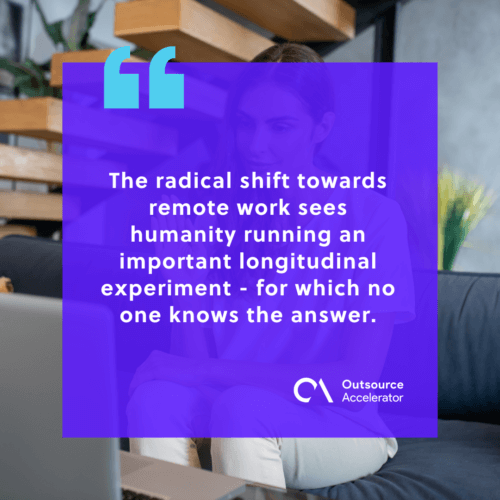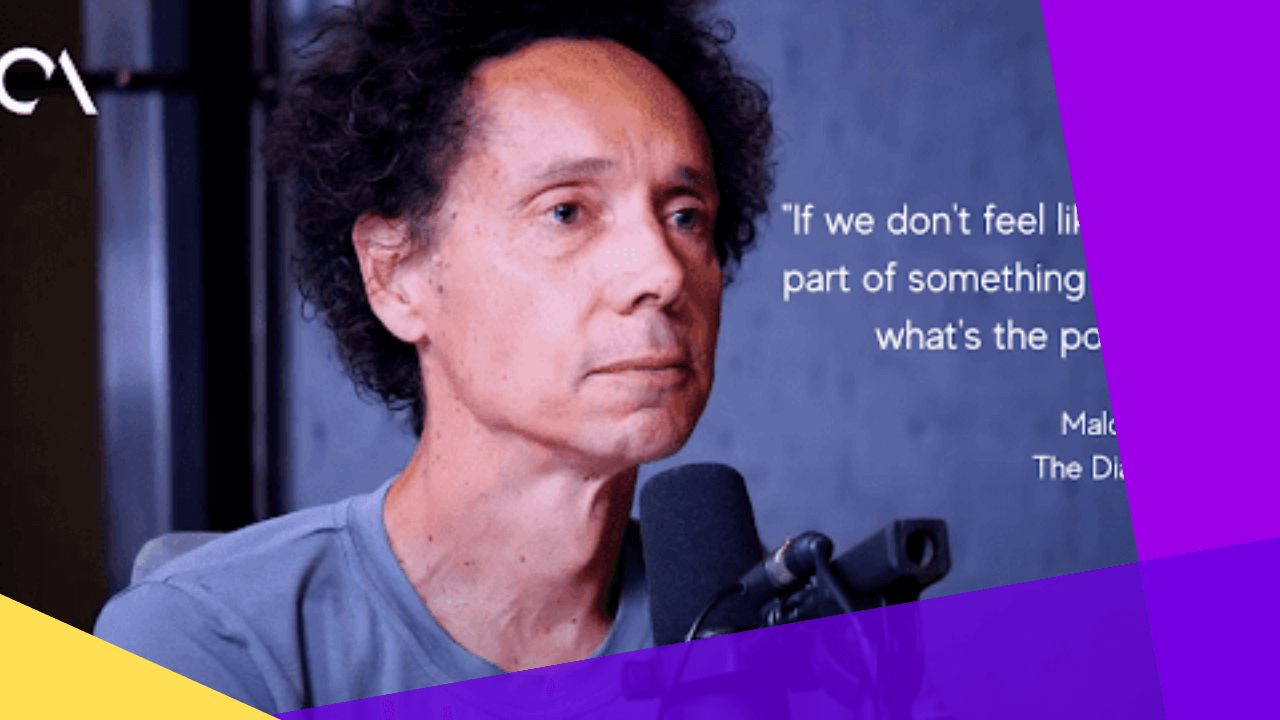Malcolm Gladwell gets emotional talking about the perils of work-from-home
Best-selling author Malcolm Gladwell has slammed the notion of working from home. In an emotional appeal, he said that people needed to come into the office again in order to regain a “sense of belonging,” to “feel necessary,” and to “feel part of something larger than themselves.”
Putting on his disappointed dad face, he said: “It’s not in your best interest to work at home,” and added: “I know it’s a hassle to come into the office, but if you’re just sitting in your pajamas in your bedroom, is that the work life you want to live?” Malcolm aired his concerns for the future of work in an interview with Steven Bartlett on his “Diary of a CEO” podcast.
Ironically, the author has spent much of his career working – writing – from home and generally in isolation. Maybe it’s irony, or possibly he is intimately aware of the downsides of working alone.

He raises an important point, though, one that is largely being ignored.
Often the nice things in life are not the best things in life. Often, the best things in life come from hardship, challenge, and obstacles. Growth and fulfillment come as a result of overcoming those obstacles.
Running a marathon is hard. So is raising children, completing a Ph.D., and climbing a mountain.
When it comes to going into the office – maybe it’s not the nicest thing. Maybe it’s inconvenient and annoying. But perhaps it’s good for us? Good for our development as people. Good for our socialization and good for our professional development.
People learn from the actions of others, and they improve by osmosis. Just by being in a room with someone else – you’re beginning to absorb their traits, behaviors, and skills.
People need to be pushed out of their comfort zones. That’s how they adapt and grow.
The younger generation of professionals are building their careers based on home-based social isolation punctuated by Slack threads and the occasional zoom call.
It might be easier than trudging into the office. But is it better? It might be better for the short term. But is it better for the long term?
Icecream, Netflix marathons, and mooching around the house might seem good in the short term, but they probably aren’t the best for the long term.
The world’s biggest social experiment
The radical shift towards remote work sees humanity running an important longitudinal experiment – for which no one knows the answer. How will 20 years of home-based work impact learning, psychology, professional development, and social cohesion?
Sure, people might save a 40-minute commute to the office by working from home, but what is the costs of this? In short – no one knows. Do we have to wait 20 years for the result?
However, humans are profoundly social creatures. So, a radical shift towards reducing social interaction – might not be the best thing. At least Malcolm Gladwell, the author of Outliers, The Tipping Point, and Blink, seems to think so.

The question for your business
Do you run your business in favor of easy solutions and short term wins, or do you take the harder paths in efforts to improve longer term gains?

 Independent
Independent





















